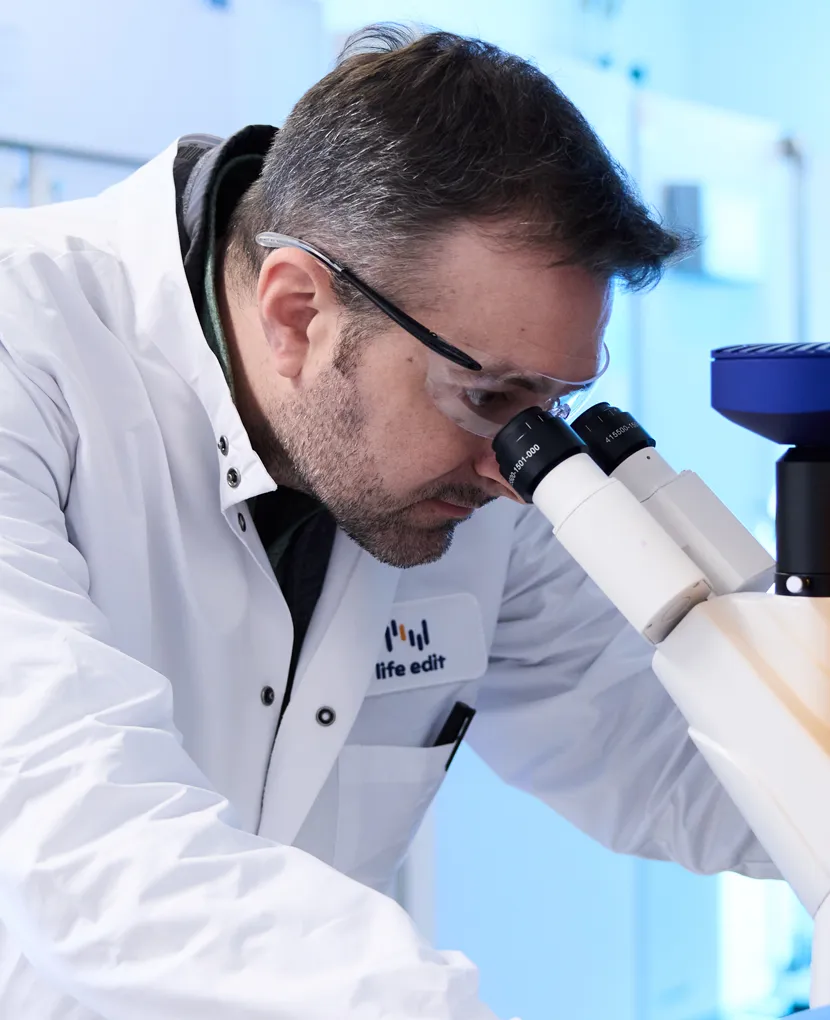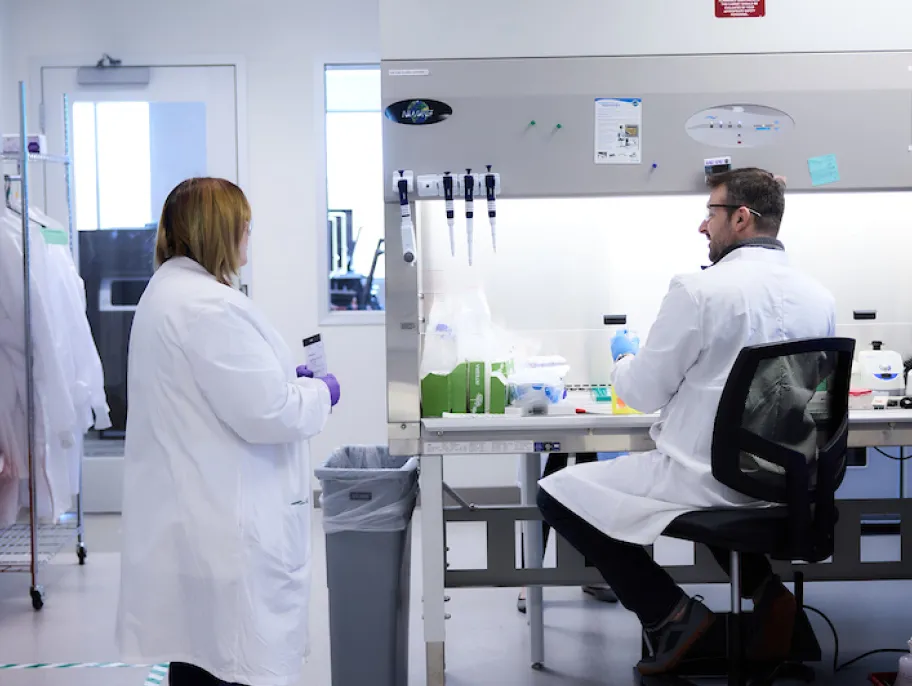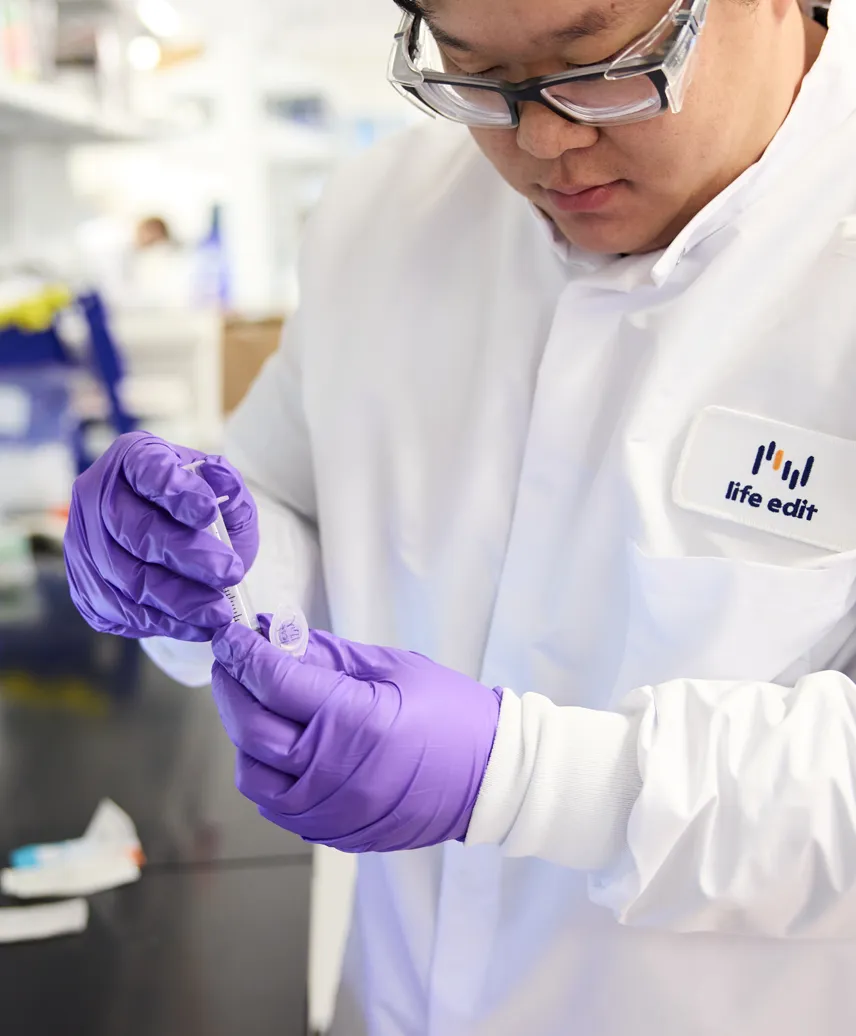Therapeutics
Enabling the discovery and development of genomic medicines for the entire biopharmaceutical industry

Therapeutic Applications
The Life Edit platform combined with ElevateBio’s industry-leading expertise to design, manufacture, and develop advanced next-generation therapies enable us and our partners to bring novel treatments to patients.
Ex Vivo Engineering
Our platform enables ex vivo engineering for cell therapies and regenerative medicines.
Ex vivo cell therapies are living medicines in which immune cells and genetic material are engineered outside of the body and then reintroduced to patients. This engineering is designed to improve immune cells’ ability to fight disease.
We are utilizing our gene editing platform to enable the next generation of cell therapies. Our platform has been validated in a variety of cell types including T cells, B cells, HSCs, iPSCs, hepatocytes, neurons, fibroblasts, retinal ganglion cell (RGC) , and multiple other cell lines.
In Vivo Therapeutics
Our gene editing systems have the potential to be delivered as in vivo therapeutics.
In vivo gene therapies can carry genetic material to specific cells to treat diseased organs, or they can be designed to provide instructions to cells and tissues to make specific proteins that can treat disease. With novel tools and diverse delivery options, we can match and deliver the best editing system directly to tissues to provide curative therapies for life-threatening diseases.
We are focused on developing next-generation therapies for otherwise intractable diseases, whether through our own internal pipeline or through collaborations with corporate partners.
Huntington’s Disease
We are developing an investigational gene editing therapy for Huntington’s disease (HD), a rare, inherited, neurodegenerative genetic disorder that affects motor function and leads to behavioral symptoms and cognitive decline in young adults, resulting in physical and mental deterioration. HD is caused by a mutation in the huntingtin gene as a result of a cytosine-adenine-guanine (CAG) trinucleotide expansion. This results in a mutant form of the huntingtin protein (mutHTT), which aggregates within the brain, causing damage to neurons and leading to progressive neurodegeneration.
Our approach to treat Huntington’s disease involves precisely targeting the mutHTT protein while sparing non-mutated forms of the huntingtin protein (wild-type HTT), which are essential for cellular functions and physiological health. Using our collection of RGNs, we can separately target both the T and C alleles of a PAM-altering SNP for allele-specific editing of the mutHTT gene.
We are advancing this program through internal development and are seeking partnership opportunities to accelerate its clinical development and commercialization to ultimately deliver a life-transforming therapy for HD patients.
Therapeutic Delivery
We have broad therapeutic delivery capabilities, including viral and non-viral delivery platforms to provide flexibility in therapeutic design and application, unlocking new possibilities for addressing a wide range of diseases and disorders.
Learn more about our therapeutics delivery systems in our technology platform

Our Technology Platform
Our gene editing platform is available to make the entire spectrum of edits, from small insertions or deletions to rewriting DNA sequences.
Partner with Life Edit
We are looking to form strategic partnerships with biotech and pharmaceutical companies to advance their life-changing and curative therapies. Our flexible partnership options include broad R&D collaborations, exclusive and non-exclusive licenses for specific assets, and strategic partnerships to access our technology platforms designed to accelerate the pipelines of our partners.
